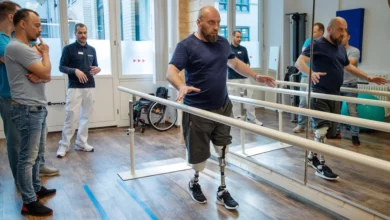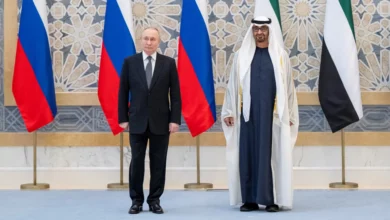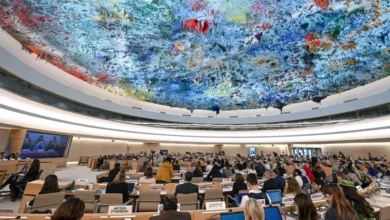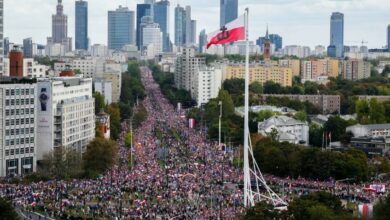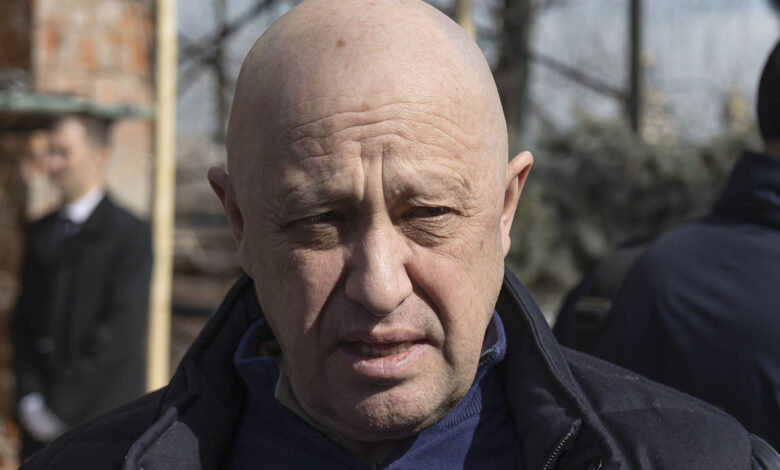
Weeks after an armed uprising by the Russian mercenary group Wagner revealed cracks in Russia’s system of one-man rule, the Kremlin has been on a PR offensive. The message is simple: Russian President Vladimir Putin is firmly in control, now please move along.
In an interview Thursday with the Russian business daily newspaper Kommersant, Putin described a three-hour meeting with Wagner commanders, including the group’s leader Yevgeny Prigozhin, just days after the private military company’s (PMC’s) abortive march on Moscow last month.
Putin put a positive spin on the meeting, but made a curious admission.
“Wagner PMC does not exist,” Putin said when asked if Wagner would be kept on as a fighting unit. “We do not have a law for private military organizations. It simply does not exist.”
Putin, who is a trained lawyer, reiterated the point during the interview: “There is no such legal entity,” he said.
Technically, Putin is correct. Article 359 of Russia’s Criminal Code outlaws mercenary activity. The law states that “recruitment, training, financing or other material support of a mercenary, as well as their participation in an armed conflict or military operations” carries heavy criminal penalties.
Putin went on to explain in the interview that the State Duma — Russia’s parliament — should consider legislation to legalize PMCs, conceding, “It’s not an easy question.”
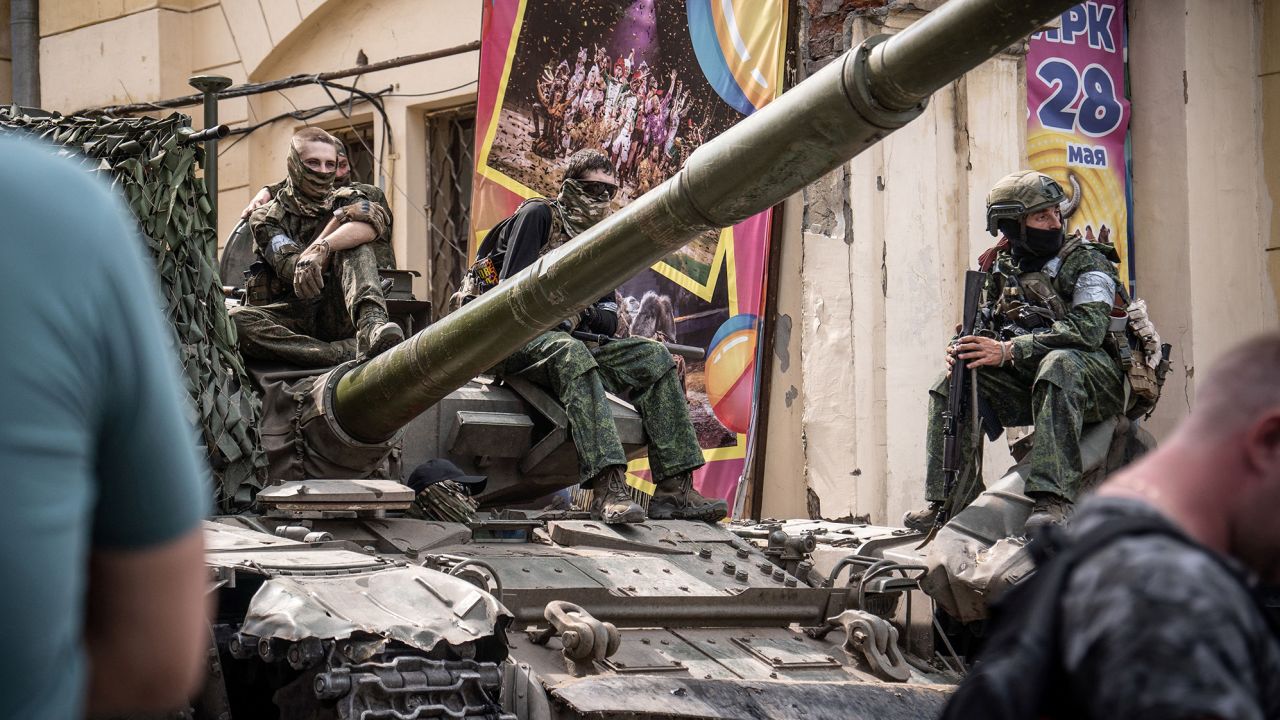
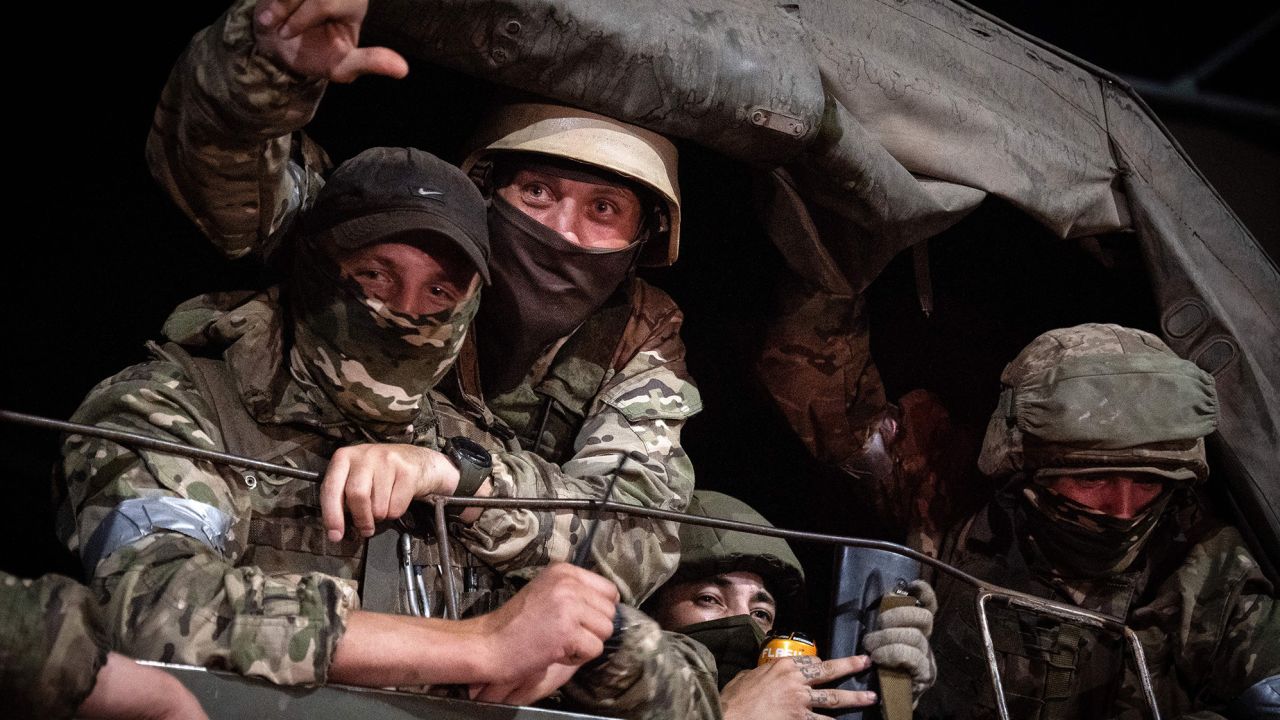
This legalistic answer, however, raises more questions than answers. Until Russia’s full-scale invasion of Ukraine last year, the Kremlin essentially denied the existence of Wagner. That changed in the months that followed, as Wagner managed to secure some symbolic victories for Russia, especially in the bitter fighting around the Ukrainian city of Bakhmut. State TV followed suit, elevating Wagner fighters to rock-star status.
But if Wagner was technically an illegal entity all this time, who authorized their use? Who trained and equipped them? And who signed off on their budget?
It’s more than a technical or philosophical question. After all, Putin himself acknowledged in remarks on June 27 to security officials that “the maintenance of the entire Wagner group was fully provided for by the state,” with the government allocating more than 86 billion rubles, or around $1 billion, for the maintenance of Wagner forces between May 2022 and May 2023 alone.
The issue is about more than Putin’s cavalier approach to the rule of law. It also serves as a reminder that Putin is the pioneer of a post-truth world.
It’s worth recalling that the Kremlin leader was also the one who denied Russian special forces — the so-called “little green men” — seized the Crimean peninsula from Ukraine in 2014. Only a few weeks after the occupation did Putin acknowledge that the men in unmarked camouflage were in fact Russian troops, not “local self-defense units.”
The same was true with Russia’s covert support to separatists in the Donbas region of eastern Ukraine from 2014 onward. The Kremlin insisted on maintaining the fiction that regular Russian forces had not propped up the separatist republics, even though Putin winkingly acknowledged that the Russian government was actively involved in Donbas, including support to the separatists and prisoner exchanges.
“We’ve never said there are no people there who deal with certain matters, including in the military area, but this does not mean that regular Russian troops are present there,” he told a Ukrainian journalist at his annual press conference in 2015. “Feel the difference.”
Wagner boss Prigozhin was also well known for playing fast and loose with facts. The onetime Putin associate long never admitted that the Internet Research Agency — his notorious “troll farm” in St. Petersburg, Russia — was involved in meddling in the 2016 US elections, but he ended the charade after the full-scale invasion of Ukraine.
“I’ve never just been the financier of the Internet Research Agency. I invented it, I created it, I managed it for a long time. It was founded to protect the Russian information space from boorish aggressive propaganda of anti-Russian narrative from the West,” Prigozhin said in February.
So what is Putin’s aim in floating this account of a meeting with Prigozhin and Wagner commanders? Besides conveying a message for the Russian public that he is still in charge, he appears to be creating a new narrative: The “good” Wagner (Prigozhin’s footsoldiers) versus the “bad” Wagner (Prigozhin himself).
In his conversation with Kommersant, Putin suggested that he noted a rift between Prigozhin and his top commanders during his meeting with them at the Kremlin.
According to the version he conveyed to Kommersant, Putin told the mercenaries that they had the option to continue fighting under their direct commander, an officer known by the call sign, ‘Sedoy,’ (‘Grey hair’).
“Nothing would have changed for them. They would be led by the same person who has been their real commander all along,” Putin had told the group, as reported by Kommersant.
“And what happened then?” the Kommersant reporter says he asked the Russian leader.
“Many people nodded [affirmatively] when I said that,” said Putin, according to Kommersant.
But according to that account, Prigozhin did not agree with the approach offered by the Kremlin.
“No, the guys do not agree with this decision,” the Wagner leader said, according to Putin.
Whether that rift — real, fictional or some mix of the two — can be exploited by the Kremlin remains to be seen. Also unclear is what Wagner’s rank and file will do. But Putin’s one-sided account suggests that the Kremlin is still figuring out how, exactly, to deal with the mercenary commander.
CNN’s Andrew Carey, Josh Pennington and Uliana Pavlova contributed reporting.

